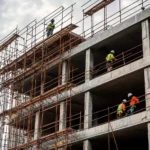Free trade zones in Turkey are special economic areas established to promote international trade and attract investments. These zones typically offer various economic advantages, such as customs exemptions or reduced tariffs. Companies operating in these zones benefit from customs duty exemptions, tax advantages, and bureaucratic facilitation.
- Free trade zones are specialized economic areas set up within the Turkish customs territory, usually located in strategic positions near ports, airports, or trade routes.
- Their objectives include promoting foreign trade, attracting foreign investment, supporting production, and creating jobs.
What Benefits Are Offered in Free Trade Zones?
Companies investing in free trade zones receive various benefits. These benefits are generally assessed based on the scale of the investment, job creation, or the technology brought into the region. Foreign investments are also encouraged and supported to facilitate the investment process. These benefits include:
- Customs and Tax Exemptions: Exemption from customs duties or reduced tariffs on imports and exports.
- Trade Facilitation: As it is possible to operate in free zones without customs duty procedures, transaction processes are faster.
- Profit Transfers: Earnings from these activities can be transferred without authorization, ensuring convenience.
Which Free Trade Zones Exist in Turkey?
There are numerous free trade zones in Turkey, among which the following are particularly significant:
- Istanbul Free Trade Zone: The largest free trade zone in Turkey, focusing primarily on trade and logistics activities.
- Izmir Free Trade Zone: Located in the Aegean region, this zone contributes to the development of industry and trade.
- Mersin Free Trade Zone: Situated near the Mediterranean coast, it stands out for its logistical advantages.
- Antalya Free Trade Zone: Located near the port of Antalya, it is important for trade in tourism and agricultural products.
- Trabzon Free Trade Zone: An important trade gateway to the Black Sea.
What Activities Are Conducted in Free Trade Zones?
Various activities can be conducted in free trade zones, including:
- Production: Manufacturing activities can be carried out in many sectors, such as industrial products, textiles, electronics, and automobiles.
- Storage: Logistics activities such as storage, distribution, and repackaging of products can be performed.
- Assembly and Disassembly: The assembly of imported parts or disassembly of products can be carried out.
- Maintenance and Repair: Maintenance and repair of machinery and equipment can be performed.
- Research and Development (R&D): Development of new products and technologies.
- Trade: Buying and selling of products, as well as import and export activities.
- Leasing Finance: Provision of financing leasing for machinery and equipment.
How can I become active in a free trade zone?
To operate in a free trade zone, either a company with its headquarters in the free trade zone must be established, or a branch in the free trade zone must be set up.
- Companies headquartered in Turkey must conduct their activities in the free trade zone through branches. Companies headquartered in a free trade zone are not permitted to conduct commercial activities or establish branches under the same trade name elsewhere in Turkey.
Do I Need a Lawyer to Operate in a Free Trade Zone?
Free trade zones are regulated by specific legal frameworks. Understanding and correctly interpreting these regulations requires legal expertise and experience. Incorrect or careless handling can lead to financial and time losses. Therefore, it is recommended to consult a lawyer if you plan to operate in a free trade zone in Turkey.
Your lawyer will guide you through this complex process, help you take the right steps, and ensure that your activities are conducted in the most successful manner.





